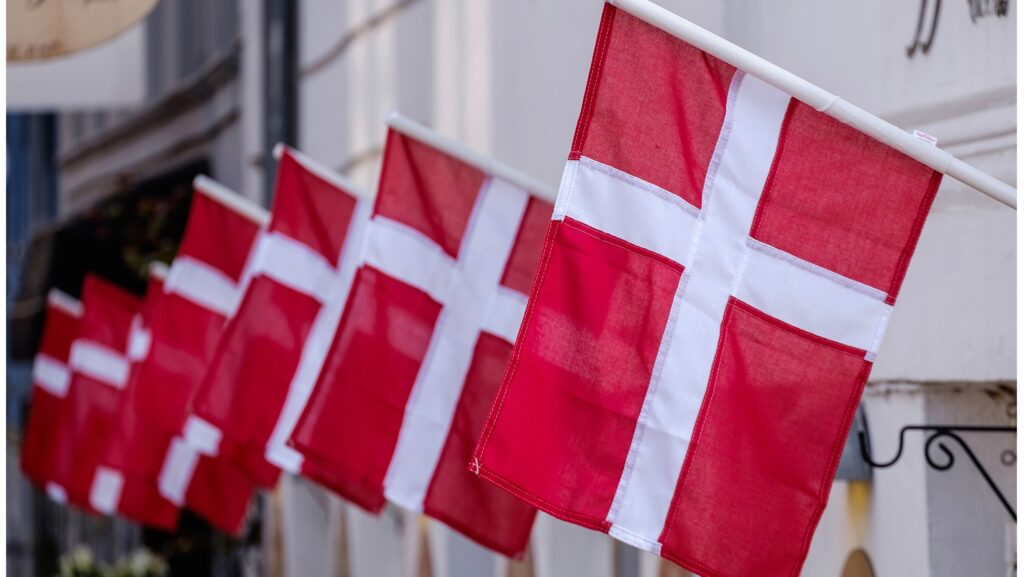The below remarks by Jerzy Kwaśniewski were given at the international conference The Rule of Law as Lawfare organized by the Danube Institute, the Center for Fundamental Rights, and The European Conservative in Budapest on 27–28 May 2024.
The rule of law has been weaponized. This did not happen yesterday. We have been observing the rule of law’s gradual weaponization since at least the Austrian case in 2000. This weapon has been mastered and perfected over the following two decades. With time, it was the substantive rule-of-law approach that dominated the formal rule-of-law approach. Values, which are easily redefined according to the political will of the time, were placed at the core of the rule-of-law principle.
From the Polish point of view, we can now confirm that the same rule-of-law principle was used as a weapon against the conservative government. Now, only a few months later, without there having been any substantial legislative change at the national level, it has become the basis of the European Union’s expression of support for Poland’s new liberal government.
In February, Justice Minister Adam Bodnar and Deputy Minister Krzysztof Śmiszek presented the Polish Action Plan for restoring the rule of law at a meeting of the General Affairs Council of the European Union.
According to the European Commission’s May 6 press release, ‘The Commission considers that there is no longer a clear risk of a serious breach of the rule of law in Poland within the meaning of Article 7(1) of the Treaty on European Union. Poland has launched a series of legislative and non-legislative measures to address the concerns regarding the independence of the judicial system, it has recognized the primacy of EU law, and is committed to implementing all the judgments of the Court of Justice of the European Union and the European Court of Human Rights related to rule of law, including judicial independence.’
Ursula von der Leyen added to this: ‘Today marks a new chapter for Poland.’
But what has TRULY HAPPENED since the new Polish liberal government was sworn in?
The truth is that Poland has experienced a coup driven by this weaponized rule-of-law doctrine and the unconstitutional implementation of so-called ‘transitional justice,’ which has led to the takeover of the public media, the courts, and the regional prosecutors’ offices in the wake of the National Prosecutor’s Office itself. This liberals’ coup is now on track to be finalized with the takeover of the Supreme Court, the National Council of the Judiciary, and the Constitutional Tribunal. It will be crowned with a purge among the ranks of the more than 2,500 judges, the imprisonment of the key leadership figures of the Law and Justice (PiS) party, and the banning of the latter if it does not first implode under the heavy burden of persecution, investigatory committees, and controlled leaks from the criminal prosecutors’ offices, all without any possibility of defense.
A month ago at CPAC Hungary, Viktor Orbán presented the progressives’ five-step plan to subjugate the West by stealth. Let me supplement this strategic approach with an observation regarding the Polish liberal coup’s tactical level, where the five priorities of the liberals’ takeover can be described in the following way:
The first priority of the liberals’ takeover: the media
An unlawful attack on the public media took place based on a resolution adopted by the Polish Sejm on December 19, 2023. On that same day, the Minister of Culture and National Heritage, Colonel Bartlomiej Sienkiewicz, appointed new supervisory boards in the public media, which in turn appointed new management boards. The minister’s actions were undertaken in violation of statutory provisions that invest all powers over public media in the Council of the National Media. Taking control of the latter was not possible without changing the law, however. What was most striking from the perspective of the average citizen was that during this forced takeover of the public media, their broadcasting signal was intentionally turned off for the first time since martial law was introduced in 1981 in order to purge the country of the Solidarity independence movement.
The second priority of the liberals’ takeover: the courts
On December 20, 2023, the Polish Sejm adopted a resolution stating that all the previous Sejm’s acts between March 2018 and May 2022 regarding the selection of the National Council of the Judiciary’s members were adopted in flagrant violation of the Polish Constitution. In this context, the Ministry of Justice proposed a procedural ‘test of independence’ whose aim is to verify the impartiality and independence of the more than 2,500 judges who were appointed to their positions after the change in the National Council of the Judiciary’s legal rules. This test, framed by the executive and legislative branches of power, will interfere with the very core of judicial power—that is, the constitutionally guaranteed status of judges as both irremovable and equal.
On December 15, 2023, Justice Minister Adam Bodnar published a draft decree imposing binding instructions for judges to take into account the primacy of European Union law in judicial decisions and written opinions in relation to said decisions.
The ‘Bodnar Decree’, as the draft regulation has already been dubbed, constitutes an obvious violation of the constitutionally guaranteed independence of judges, who are subject only to the Constitution and the law.
In the meantime, Adam Bodnar exercised his ministerial powers to suspend the presidents of the most important appellate courts. He did so without following the formal requirement concerning the National Council of the Judiciary’s involvement in the process and acting against the Constitutional Tribunal’s interim orders.
The third priority of the liberals’ takeover: use all powers of criminal justice against the opposition
Under the Law on the Public Prosecutor’s Office, ‘[t]he National Prosecutor and the other deputies of the Prosecutor General shall be appointed AFTER having obtained the OPINION of the President of the Republic of Poland, and dismissed upon his written consent’. Knowing he could not count on President Andrzej Duda’s support in the liberals’ takeover of the National Prosecutor Office, the justice minister ruled that National Prosecutor Dariusz Barski never in fact effectively took office, as his appointment in 2022 was tainted with… a formal defect. His claim led to another formal defect that is real, however: Donald Tusk likewise appointed a new national prosecutor, Dariusz Korneluk, without first soliciting the President’s opinion, as required by law.
Thus, Poland is now in a situation where, as a result of thousands of judges having their status challenged and new prosecutors being unlawfully appointed in the wake of Korneluk’s unlawful appointment as the national prosecutor while the legality of their predecessors’ appointments is being denied by Donald Tusk’s government, hundreds of thousands of court rulings and hundreds of thousands of pending criminal pre-trial proceedings can now be called into question.
At the same time, politically-motivated investigations are being conducted publicly via the creation of three investigation committees in the Polish parliament. Thus, key witnesses for the prosecution can now present their testimonies publicly in Parliament without the presence of the defense and without any possibility of their statements being counterbalanced or questioned. Furthermore, the homes and offices of 30 politicians and board members of various NGOs have been searched, and documents, computers, and phones have been seized from them. Some of them, such Father Olszewski, have even been arrested.
Fourth priority of the liberals’ takeover: the Constitutional Tribunal
On March 6, 2024, the Sejm adopted a resolution declaring that ten different acts of Parliament concerning the Constitutional Tribunal were in violation of the Constitution and the European Convention on Human Rights. At the same time, three of the past appointments of constitutional judges were likewise declared to be invalid. Many decisions of the Constitutional Tribunal were also said to be null and void. Since then, the Tusk government has been ignoring all interim orders issued by the Constitutional Tribunal.
Fifth Priority of the liberals’ takeover: the Supreme Court
We are now waiting for the final steps of this coup in the liberals’ takeover of the Supreme Court. According to the aforementioned Action Plan, ‘[t]o strengthen the independence of the Supreme Court, Poland plans to introduce changes to the Supreme Court Act. These will mainly concern the Chamber of Extraordinary Control and Public Affairs, which—according to the CJEU and ECHR case law—is not an independent court established by law. Details are yet to be published.’
‘Today marks a new chapter for Poland,’ Ursula von der Leyen claimed in early May when announcing the European Commission’s decision to withdraw its case against Poland in the Article 7 procedure it had launched in 2017.
I would add to that: ‘Today marks a final warning for all conservatives in the EU.’
Treaty recommendations in order to thwart the weaponization of the rule of law
It can obviously be concluded that, since December, the Polish liberal government has implemented a radical and revolutionary policy aimed at a hostile takeover of the state’s institutions, as well as the state itself. This has been made possible because of the long-term development, as observed in the European Union, whereby the ‘substantive rule of law’ approach has come to dominate over the ‘formal rule of law approach’ in EU jurisprudence.
Supporters of the ‘formal rule of law’ approach consider that it is sufficient for the public authorities to act based on the law, regardless of its content. Meanwhile, apologists of the ‘substantial rule of law’ approach are presenting the opinion that the rule of law not only means that laws must be introduced in a proper way, but that they must be ‘just’—meaning that they must not only follow the rules, but also some external system of values and principles.
Polish and Hungarian case studies clearly show that the ‘substantive rule of law’ has become a tool of lawfare. This could be easily foreseen, as the risk of the political weaponization of the rule of law increases with the diversity in values of a given community and reaches its highest level when attempting to apply it to a broad and diverse international community.
In reply to this development in the rule of law doctrine that has been observed, we propose a two-level solution that will combine both (i) the objectivity of the formal rule of law approach, and (ii) much-needed moral and cultural standards under the ‘substantive rule of law’ approach. While the first—formal—approach should be applied to ensure a minimum of harmony with respect for diversity on the international EU level, the second will be best implemented at the level of achievable ethical consensus – that is, at the national level. This is just one of many much-needed conservative proposals for a deep reform of the EU, but one that would bring us back to a more state- and treaty-oriented system where the genuine rule of law reigns.








